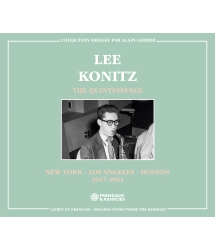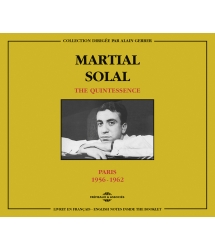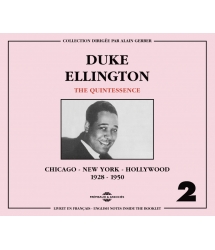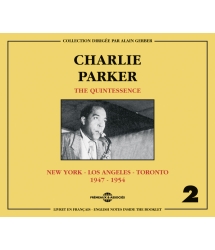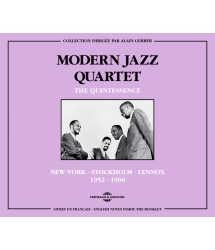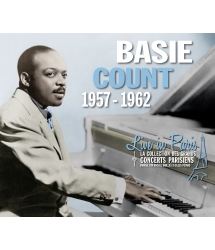- Our Catalog
- Philosophy
- Philosophers of the 20th century and today
- History of Philosophy (PUF)
- Counter-History and Brief Encyclopedia by Michel Onfray
- The philosophical work explained by Luc Ferry
- Ancient thought
- Thinkers of yesterday as seen by the philosophers of today
- Historical philosophical texts interpreted by great actors
- History
- Books (in French)
- Social science
- Historical words
- Audiobooks & Literature
- Our Catalog
- Jazz
- Blues
- Rock - Country - Cajun
- French song
- World music
- Africa
- France
- Québec / Canada
- Hawaï
- West Indies
- Caribbean
- Cuba & Afro-cubain
- Mexico
- South America
- Tango
- Brazil
- Tzigane / Gypsy
- Fado / Portugal
- Flamenco / Spain
- Yiddish / Israel
- China
- Tibet / Nepal
- Asia
- Indian Ocean / Madagascar
- Japan
- Indonesia
- Oceania
- India
- Bangladesh
- USSR / Communist songs
- World music / Miscellaneous
- Classical music
- Composers - Movie Soundtracks
- Sounds of nature
- Our Catalog
- Youth
- Philosophy
- News
- How to order ?
- Receive the catalog
- Manifesto
- Dictionnary











- Our Catalog
- Philosophy
- Philosophers of the 20th century and today
- History of Philosophy (PUF)
- Counter-History and Brief Encyclopedia by Michel Onfray
- The philosophical work explained by Luc Ferry
- Ancient thought
- Thinkers of yesterday as seen by the philosophers of today
- Historical philosophical texts interpreted by great actors
- History
- Books (in French)
- Social science
- Historical words
- Audiobooks & Literature
- Our Catalog
- Jazz
- Blues
- Rock - Country - Cajun
- French song
- World music
- Africa
- France
- Québec / Canada
- Hawaï
- West Indies
- Caribbean
- Cuba & Afro-cubain
- Mexico
- South America
- Tango
- Brazil
- Tzigane / Gypsy
- Fado / Portugal
- Flamenco / Spain
- Yiddish / Israel
- China
- Tibet / Nepal
- Asia
- Indian Ocean / Madagascar
- Japan
- Indonesia
- Oceania
- India
- Bangladesh
- USSR / Communist songs
- World music / Miscellaneous
- Classical music
- Composers - Movie Soundtracks
- Sounds of nature
- Our Catalog
- Youth
- Philosophy
- News
- How to order ?
- Receive the catalog
- Manifesto
- Dictionnary
LIVE IN PARIS 1960-1961
Ref.: FA5645
Label : Frémeaux & Associés
Total duration of the pack : 3 hours 39 minutes
Nbre. CD : 3
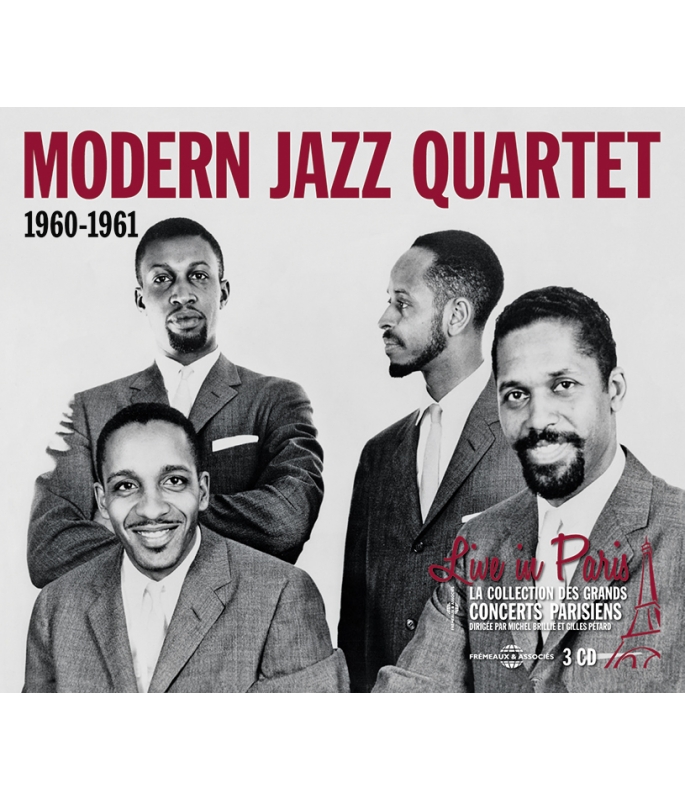
LIVE IN PARIS 1960-1961
LIVE IN PARIS 1960-1961
With its blend of swing, bop, cool and soul jazz, the classically inspired Modern Jazz Quartet, or MJQ, is probably one of the most famous jazz quartets in history and, driven by vibraphonist Milt Jackson and pianist John Lewis, the group reached its artistic heights in the Sixties. Worshipped throughout the world for its elegant music, the MJQ played jazz with a smooth exterior but devastating swing… Taken from concerts played in their tours in 1960 and ‘61, this 3CD set contains unreleased material by a quartet of legend. Patrick FRÉMEAUX
The Live in Paris collection by Michel Brillié allows listeners to hear previously-unreleased recordings (made at concerts and private- or radio-sessions) by the great 20th stars in jazz, rock & roll and song. These “live” takes, and the artists’ rapport with their audiences, gives these performances an additional soul and sensibility in counterpoint to the rigorous demands of studio recordings. Particular care was taken when restoring the sound of these tapes in order to meet CD standards while preserving the original colours of the period. Patrick FRÉMEAUX & Gilles PÉTARD
-
PisteTitleMain artistAutorDurationRegistered in
-
1DjangoModern Jazz Quartet00:05:441960
-
2BluesologyModern Jazz Quartet00:05:031960
-
3La RondeModern Jazz Quartet00:03:491960
-
4I Should CareModern Jazz Quartet00:06:271960
-
5I Remember CliffordModern Jazz Quartet00:05:371960
-
6CortegeModern Jazz Quartet00:07:251960
-
7VendomeModern Jazz Quartet00:02:561960
-
8The CylinderModern Jazz Quartet00:06:041960
-
9Pyramid (Blues For Junior)Modern Jazz Quartet00:07:411960
-
10Skating In Central ParkModern Jazz Quartet00:06:081960
-
11The Little ComedyModern Jazz Quartet00:15:451960
-
12Round MidnightModern Jazz QuartetJon Hendricks00:04:141960
-
PisteTitleMain artistAutorDurationRegistered in
-
1I Can't Get StartedModern Jazz QuartetIra Gershwin00:04:441961
-
2A Night In TunisiaModern Jazz QuartetDizzy Gillespie00:03:391961
-
3The Golden Striker 1st ConcertModern Jazz Quartet00:05:191961
-
4If I Were Eve 1st ConcertModern Jazz Quartet00:06:061961
-
5Belkis 1st ConcertModern Jazz Quartet00:03:521961
-
6Bag's GrooveModern Jazz Quartet00:05:491961
-
7How High The Moon 1st ConcertModern Jazz QuartetNancy Hamilton00:06:181961
-
8YesterdaysModern Jazz QuartetNancy Hamilton00:05:471961
-
9I'll Remember AprilModern Jazz QuartetG. Depaul00:05:341961
-
10Django 2Modern Jazz Quartet00:05:251961
-
11TriesteModern Jazz Quartet00:06:331961
-
12FugatoModern Jazz Quartet00:02:561961
-
13Odds Against TomorrowModern Jazz Quartet00:09:401961
-
PisteTitleMain artistAutorDurationRegistered in
-
1How High The Moon 2nd ConcertModern Jazz QuartetNancy Hamilton00:06:181961
-
2The Golden Striker 2nd ConcertModern Jazz Quartet00:05:251961
-
3Lamb Leopard (If I Were Eve) 2nd ConcertModern Jazz Quartet00:05:571961
-
4PierrotModern Jazz QuartetDeuter00:04:121961
-
5Belkis 2nd ConcertModern Jazz Quartet00:04:081961
-
6It Don't Mean A ThingModern Jazz QuartetIrving Mills00:04:081961
-
7Lonely WomanModern Jazz Quartet00:07:251961
-
8Piazza NavonaModern Jazz Quartet00:05:041961
-
9ColombineModern Jazz Quartet00:04:311961
-
10ConcordeModern Jazz Quartet00:03:531961
-
11Why Are You BlueModern Jazz Quartet00:06:241961
-
12Animal DanceModern Jazz Quartet00:05:311961
-
13I Should CareModern Jazz QuartetSammy Cahn00:07:451961
MJQ FA5645
MODERN JAZZ QUARTET
1960-1961
En mélangeant swing, bop, cool, soul jazz, et inspirations classiques, le Modern Jazz Quartet est sans doute le plus fameux des quartets jazz de l’histoire. Propulsé par le vibraphoniste Milt Jackson et le pianiste John Lewis, le groupe est au début des années 1960 au sommet de son art. Adulé par le monde entier pour le raffinement de sa musique, le MJQ propose un jazz à la figure lisse mais au swing ravageur. Regroupant des concerts issus des tournées 1960 et 1961, ce coffret 3 CD permet d’écouter des inédits du quartet légendaire.
Patrick FRÉMEAUX
La collection « Live in Paris », dirigée par Michel Brillié, permet de retrouver des enregistrements inédits (concerts, sessions privées ou radiophoniques), des grandes vedettes du jazz, du rock & roll et de la chanson du XXe siècle. Ces prises de son live et la relation avec le public apportent un supplément d’âme et une sensibilité en contrepoint à la rigueur appliquée lors des enregistrements studio. Une importance singulière a été apportée à la restauration sonore des bandes pour convenir aux standards CD tout en conservant la couleur d’époque.
Patrick FRÉMEAUX & Gilles PÉTARD
With its blend of swing, bop, cool and soul jazz, the classically inspired Modern Jazz Quartet, or MJQ, is probably one of the most famous jazz quartets in history and, driven by vibraphonist Milt Jackson and pianist John Lewis, the group reached its artistic heights in the Sixties. Worshipped throughout the world for its elegant music, the MJQ played jazz with a smooth exterior but devastating swing… Taken from concerts played in their tours in 1960 and ‘61, this 3CD set contains unreleased material by a quartet of legend.
Patrick FRÉMEAUX
The Live in Paris collection by Michel Brillié allows listeners to hear previously-unreleased recordings (made at concerts and private- or radio-sessions) by the great 20th stars in jazz, rock & roll and song. These “live” takes, and the artists’ rapport with their audiences, gives these performances an additional soul and sensibility in counterpoint to the rigorous demands of studio recordings. Particular care was taken when restoring the sound of these tapes in order to meet CD standards while preserving the original colours of the period.
Patrick FRÉMEAUX & Gilles PÉTARD
MODERN JAZZ QUARTET
CD 1 : 1. Django 5’44 • 2. Bluesology 5’03 • 3. I Should Care 6’27 • 4. La Ronde 3’49 • 5. I Remember Clifford 5’37 • 6. Cortege 7’25 • 7. Vendome 2’56 • 8. The Cylinder 6’04 • 9. Pyramid (Blues for Junior) 7’41 • 10. Skating in Central Park 6’08 • 11. The Little Comedy (La Cantatrice / Harlequin / Fontessa) 15’45 • 12. Round Midnight 4’14.
CD 2 : 1. I Can’t Get Started 4’44 • 2. A Night in Tunisia 3’39 • 3. The Golden Striker [1st concert] 5’19 • 4. If I Were Eve [1st concert] 6’06 • 5. Belkis [1st concert] 3’52 • 6. Bag’s Groove 5’49 • 7. How High the Moon [1st concert] 6’18 • 8. Yesterdays 5’47 • 9. I’ll remember April 05’34 • 10. Django 5’25 • 11. Trieste 6’33 • 12. Fugato 2’56 • 13. Odds Against Tomorrow 9’40.
CD 3 : 1. How High the Moon [2nd concert] 6’18 • 2. The Golden Striker [2nd concert] 5’25 • 3. Lamb, Leopard (If I Were Eve) [2nd concert] 5’57 • 4. Pierrot 4’12 • 5. Belkis [2nd concert] 4’08 • 6. It Don’t Mean a Thing 5’03 • 7. Lonely Woman 7’25 • 8. Piazza Navona 05’04 • 9. Colombine 4’31 • 10. Concorde 3’53 • 11. Why Are You Blue? 6’24 • 12. Animal Dance 5’31 • 13. I Should Care 7’45.
MODERN JAZZ QUARTET
LIVE IN PARIS 1960-1961
Par Alain TERCINET
Est-ce parce que, quatre mois plus tôt, le Modern Jazz Quartet avait à deux reprises rempli le Théâtre des Champs-Élysées qu’aucun compte-rendu du concert donné le 9 avril 1960 n’a paru dans la presse spécialisée ? Il est vrai que, aussi bien dans Jazz-Hot que dans Jazz Magazine, les journalistes étaient occupés à s’affronter à propos du nouveau saxophoniste de Miles Davis, John Coltrane. Pourtant, au sujet du double album qui réunissait des extraits de concerts qu’avait donné le M. J. Q. en Scandinavie après son passage à Paris, le critique Martin Williams écrivit : « Leur jeu dans la totalité des morceaux est si proche de la perfection qu’on se demande bien ce que cet exceptionnel groupe de musiciens va bien pouvoir trouver à faire ensuite. » Une interrogation que tout spectateur présent à l’Olympia aurait été en droit de se poser.
Si quelques pièces telles Django, La Ronde ou Vendome appartenaient depuis longtemps au répertoire, le reste du programme donnait à découvrir des compositions inédites ou encore peu connues. I Should Care évoquait le séjour de John Lewis et de Milt Jackson au sein du grand orchestre de Dizzy Gillespie ; I Remember Clifford, The Cylinder ne furent interprétées qu’en concert ; Pyramid et Skating in Central Park, tiré de la bande sonore du film « Odds Against Tomorrow » écrite par John Lewis, venaient tout juste d’être mis en boîte à New York.
La passion de John Lewis pour l’Italie, son histoire, sa musique et sa culture, transparaît au travers de Cortege. Une marche funèbre composée pour « Sait-on jamais », un film de Roger Vadim dont l’intrigue se déroulait à Venise. « En voyant une procession funéraire typique sur le Grand Canal, d’une certaine manière je n’ai pu m’empêcher de penser aux enterrements de la Nouvelle-Orléans, aussi joyeux que tristes et ce double aspect que j’avais à l’esprit s’est retrouvé dans ma musique. »
Après avoir évoqué la Cité des Doges avec Cortege, John Lewis saluait la Comedia dell’Arte au travers de The Little Comedy. Rare trace conservée sur disque de cette mini-suite enchaînant trois pièces indépendantes, The Cantatrice, Harlequin, Fontessa. Moins de quinze jours plus tard, toujours à Paris mais sur la scène de l’Alhambra, le M. J. Q. interprétait la version intégrale de The Comedy. Elle accompagnait quatre danseurs évoluant sur une chorégraphie de Gunther Kieser. Nombreux furent les témoignages évoquant l’enthousiasme des spectateurs. Il en sera bien différemment le 4 novembre 1961 en fin d’après-midi.
Le concert devait débuter à 18 heures. À dix-neuf heures seulement, trois musiciens pénétrèrent sur la scène de l’Olympia : Connie Kay qui s’installa derrière une batterie d’emprunt, John Lewis affichant un sourire crispé et Percy Heath. De Milt Jackson, point. Hurlements d’un public peu porté à l’indulgence après une aussi longue attente. Plusieurs explications concernant ce retard et cette défection furent données a posteriori : absence du vibraphone retenu on ne sait où, un désaccord entre le quartette et son manager européen augmenté d’une dissension interne à propos de contrats.
La première partie du concert fut donc assurée par le trio de John Lewis dont les grandes qualités, manifestes au long de I Can’t Get Started et de A Night in Tunisia, eurent quelque peine à satisfaire un public en ébullition. L’arrivée tardive de Milt Jackson fit évidemment baisser la tension.
Lorsque, à minuit, le M. J. Q. revint sur scène, tout était rentré dans l’ordre.
Une nouvelle fois, le répertoire sollicité faisait alterner pièces connues - Django, The Golden Striker venu de « Sait-on jamais ? », Odds Against Tomorrow extrait de la musique du film éponyme - et nombre de compositions nouvelles. N’ayant pas encore connu les honneurs du studio, elles étaient présentées en avant-première : Belkis, du nom de la reine de Saba, Piazza Navona, Trieste, deux nouveaux hommages rendus à l’Italie, Pierrot et Columbine. Deux pièces appartenant à la partition du ballet « The Comedy », dont trois autres extraits avaient été interprétés l’année d’avant sur cette même scène.
Créé le 10 mars 1961 par le San Francisco Ballet, “Original Sin” avait été commandé à John Lewis et au père des poètes de la Beat Generation, Kenneth Rexroth, par Lewis Christiensen, le directeur de la troupe. La partition, dirigée par son auteur, avait été enregistrée par un grand orchestre de studio. Pour le Modern Jazz Quartet, John Lewis en avait adapté trois extraits, Animal Dance, Fugato et Lamb, Leopard alias If I Were Eve.
À côté de ces « originaux » mettant en évidence un don rare pour créer des mélodies, John Lewis savait en choisir d’autres correspondant à la démarche du M. J. Q. Des standards éprouvés, I’ll Remember April, Yesterdays, How High the Moon, une ballade signée Gary McFarland Why Are You Blue? ou une composition d’Ornette Coleman dont il avait été l’un des rares défenseurs. L’année précédente, il avait même sollicité sa participation à l’album « Jazz Abstractions » qu’il co-signait avec Gunther Schuller.
Lonely Woman n’avait pas encore donné son titre à un LP du Modern Jazz Quartet. Ce soir-là, en fut servie une version poignante, d’une durée supérieure à celle que, bientôt, le disque pérénnisera.
Entamée sous le signe de la frustration, la soirée du 4 novembre 1961 se termina en apothéose avec une belle version de I Should Care. Fort tard. Tant pis, le dernier métro était raté, personne ne s’en plaignit.
© FRÉMEAUX & ASSOCIÉS 2016
MODERN JAZZ QUARTET
LIVE IN PARIS 1960-1961
By Alain TERCINET
Was it because the Modern Jazz Quartet had filled the Champs-Élysées Theatre twice some four months earlier that no review of their April 9, 1960 concert appeared in the specialist press? It’s true that, both in “Jazz-Hot” and “Jazz Magazine”, the journalists were busy competing for coverage of Miles Davis’ new saxophonist John Coltrane. Critic Martin Williams, however, writing about the MJQ’s double album that collated excerpts from concerts in Scandinavia after the quartet moved on from Paris, wrote enthusiastically, “The playing on the whole is so very nearly perfect that one almost wonders what this exceptional group of musicians can possibly find to do next.” Every spectator who’d been at the Olympia on April 9 was entitled to wonder also.
If a few pieces like Django, La Ronde or Vendome had been in the quartet’s book for a long time, the rest of their programme enabled the audience to discover compositions that were either brand-new or not yet familiar. I Should Care recalled the days when John Lewis and Milt Jackson where members of Dizzy Gillespie’s big band; I Remember Clifford and The Cylinder were tunes that had only been played at concerts; and Pyramid and Skating in Central Park, the latter taken from the soundtrack written by John Lewis for the film “Odds Against Tomorrow”, were titles that the Quartet had only just recorded at a session in New York.
John Lewis’ passion for Italy, its history, music and its culture, transpires throughout the tune Cortege, a funeral march composed for Roger Vadim’s film “No Sun in Venice” [original title, “Sait-on jamais”, 1957]. According to the pianist, “In seeing a colourful funeral procession on the Grand Canal, however, I can’t help but think of funerals in New Orleans, which are happy as well as sad, and that double image in my mind undoubtedly is reflected in my music.” After evoking Venetian Doges with Cortege, John Lewis pays tribute to Italy’s “Commedia dell’Arte” in The Little Comedy, and this is a rare trace on record of the pianist’s mini-suite composed of three independent themes, The Cantatrice, Harlequin and Fontessa.
Less than two weeks later, still in Paris but this time onstage at the Alhambra, the MJQ performed the complete version of The Comedy. It accompanied four dancers (the choreography was created by Gunther Kieser), and this time the media relayed the spectators’ enthusiasm. Things would be quite different in the late afternoon of November 4, 1961.
The concert was supposed to start at 6 p.m. but it wasn’t until 7 that three musicians came onstage at the Olympia: Connie Kay, who sat down behind a borrowed drum kit; John Lewis, whose smile was grim; and bass player Percy Heath. Milt Jackson was nowhere in sight. There were catcalls from the audience; after such a long wait, nobody was inclined to be indulgent. Later, different reasons were aired to explain the late arrival of the group and Milt Jackson’s defection: the vibraphonist was held up somewhere, or there’d been a difference of opinion between the quartet and their European manager, not to mention internal disagreement over their contracts.
So the first part of the concert fell to John Lewis’ trio, whose great qualities — shown throughout I Can’t Get Started and A Night in Tunisia — had a lot of difficulty satisfying an audience of seething MJQ fans. The very belated arrival of Milt Jackson brought their blood pressure back to normal, obviously, and everything was fine for the second set when the MJQ trooped back onstage at midnight.
Once again, the repertoire chosen by the group alternated known pieces — Django, The Golden Striker (taken from “No Sun in Venice”) plus Odds Against Tomorrow from the film of the same name — with a number of new compositions. The new titles, which hadn’t yet had the honour of a studio session, were being given their first previews: Belkis, named after the Queen of Sheba, Piazza Navona, Trieste, two new tributes to Italy, Pierrot and Columbine, two pieces belonging to the score for the ballet “The Comedy”, from which three other excerpts had been performed the previous year on that very same stage.
“Original Sin” was a commission given jointly to John Lewis and the father of the Beat Generation poets, Kenneth Rexroth, by Lewis Christiensen, the director of the San Francisco Ballet troupe who premiered the work on March 10, 1961. A large studio orchestra recorded the score with its composer conducting, but for the Modern Jazz Quartet, John Lewis adapted three excerpts: Animal Dance, Fugato and Lamb, Leopard, also known as If I Were Eve.
Besides these “originals”, which all show the pianist’s rare talents as a melodist, John Lewis had a knack for choosing pieces suited to the MJQ’s approach. There were proven standards — I’ll Remember April, Yesterdays, How High the Moon — a Gary McFarland ballad, Why Are You Blue?, and a composition by Ornette Coleman (a musician whose supporters were rare, but John Lewis was one of them). The year before, Lewis had even sought Ornette’s participation in the album “Jazz Abstractions” he made together with Gunther Schuller.
Lonely Woman hadn’t yet given its title to an LP by the Modern Jazz Quartet; on this particular evening, the MJQ gives it a very poignant performance of it, and its duration here is longer than the version perpetuated by the studio recording.
If the evening of November 4, 1961 began with some frustration, it ended in a sparkling flourish with this beautiful version of I Should Care. The hour was late, but no spectators complained if they missed the last train.
Adaptated into English by Martin DAVIES
© FRÉMEAUX & ASSOCIÉS 2016
CD 1
1. Django (John Lewis) 05’44
2. Bluesology (Milt Jackson) 05’03
3. I Should Care (Sammy Cahn / Axel Stordahl, Paul Weston) 06’27
4. La Ronde (John Lewis) 03’49
5. I Remember Clifford (Benny Golson) 05’37
6. Cortege (John Lewis) 07’25
7. Vendome (John Lewis) 02’56
8. The Cylinder (Milt Jackson) 06’04
9. Pyramid (Blues for Junior) (Ray Brown) 07’41
10. Skating in Central Park (John Lewis) 06’08
11. The Little Comedy (La Cantatrice / Harlequin / Fontessa) (John Lewis) 15’45
12. Round Midnight (Jon Hendricks / Cootie Williams, Thelonious Monk) 04’14
CD 2
1. I Can’t Get Started (Ira Gershwin / Vernon Duke) 04’44
2. A Night in Tunisia (Dizzy Gillespie / Frank Paparelli) 03’39
3. The Golden Striker [1st concert] (John Lewis) 05’19
4. If I Were Eve [1st concert] (John Lewis) 06’06
5. Belkis [1st concert] (John Lewis) 03’52
6. Bag’s Groove (Milt Jackson) 05’49
7. How High the Moon [1st concert] (Nancy Hamilton / Morgan Lewis) 06’18
8. Yesterdays (Otto Harbach / Jerome Kern) 05’47
9. I’ll remember April (Gene DePaul / Patricia Johnston, Don Raye) 05’34
10. Django (John Lewis) 05’25
11. Trieste (John Lewis) 06’33
12. Fugato (John Lewis) 02’56
13. Odds Against Tomorrow (John Lewis) 09’40
CD 3
1. How High the Moon [2nd concert] (Nancy Hamilton / Morgan Lewis) 06’18
2. The Golden Striker [2nd concert] (John Lewis) 05’25
3. Lamb, Leopard (If I Were Eve) [2nd concert] (John Lewis) 05’57
4. Pierrot (Deuter, John Lewis) 04’12
5. Belkis [2nd concert] (John Lewis) 04’08
6. It Don’t Mean a Thing (Irving Mills / Duke Ellington) 05’03
7. Lonely Woman (Ornette Coleman) 07’25
8. Piazza Navona (John Lewis) 05’04
9. Colombine (John Lewis) 04’31
10. Concorde (John Lewis) 03’53
11. Why Are You Blue? (Gary McFarland) 06’24
12. Animal Dance (John Lewis) 05’31
13. I Should Care (Sammy Cahn / Axel Stordahl, Paul Weston) 07’45
